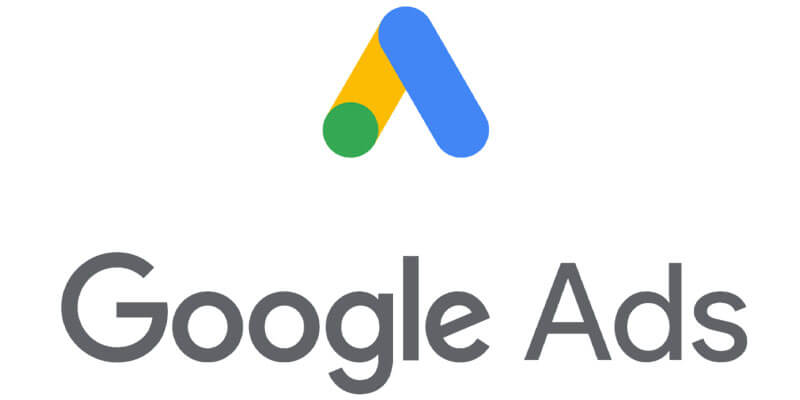Google Ads Marketing (PPC)
Google Ads, formerly known as Google AdWords, is an online advertising platform that allows businesses to create ads and display them to their target audience on Google search results pages, websites, and other online platforms. Google Ads is an important tool for businesses in Kenya and worldwide looking to reach their target audience, generate leads and sales, and achieve their business goals. It is one of the most powerful digital marketing channels available to marketers today.
This article aims to provide an overview of Google Ads, its benefits for businesses in Kenya, and how to create effective ads, manage your account, and become a Google Ads specialist.
What is Google Ads?
Google Ads was first launched in 2000 as a self-service platform for businesses to advertise on Google search results pages. Since then, it has evolved to become a comprehensive advertising platform that allows businesses to create and display ads on various online platforms, including Google search results pages, YouTube, Gmail, and millions of other websites and apps.
Google Ads consists of several components, including:
Ad campaigns: A set of ad groups (ads, keywords, and bids) that share a budget, location targeting, and other settings.
Ad groups: A set of ads that share a set of keywords and bids.
Ads: The actual ad creative that appears on search results pages, websites, and other online platforms.
Keywords: Words or phrases that trigger your ads to appear when someone searches for those terms
Bids: The amount of money you are willing to pay for a click on your ad or for 1,000 impressions of your ad.
Targeting options: Various options to target your ads to specific audiences, locations, languages, and devices.
There are several types of Google Ads, including:
Search Ads: Text ads that appear on Google search results pages when someone searches for a keyword related to your business.
Display Ads: Image or video ads that appear on millions of websites and apps that partner with Google to display ads.
Video Ads: Ads that appear on YouTube or other video platforms.
Shopping Ads: Ads that display products from your online store on Google search results pages.

How Can Google Ads Help You Advance Your Business Goals?
Google Ads can help businesses achieve a variety of business goals, including:
Increase website traffic: Google Ads can help drive traffic to your website by displaying your ads to users who are actively searching for products or services related to your business.
Generate leads: By using lead forms or driving traffic to a landing page, Google Ads can help businesses in Kenya and worldwide generate leads and collect valuable customer information.
Boost sales: Google Ads can help increase sales by driving traffic to your online store, promoting special offers or discounts, and encouraging users to make a purchase.
Other business goals that can be achieved with Google Ads: Google Ads can also help businesses achieve other goals, such as increasing brand awareness, promoting events, and driving app downloads.
How to Create Google Ads
Creating effective Google Ads requires a strategic approach and attention to detail. Here are the steps to create Google Ads:
Setting up a Google Ads account: To create Google Ads, you first need to set up a Google Ads account. You can do this by visiting the Google Ads website and signing up with your email address and business information.
Creating ad campaigns: Once you have set up your account, you can start creating ad campaigns. Ad campaigns allow you to set a budget, choose your targeting options, and create ad groups.
Choosing ad formats and ad creative: Google Ads offers various ad formats, including text ads, image ads, video ads, and shopping ads. Choose the format that best fits your business goals and create ad creative that is eye-catching, relevant, and compelling.
Targeting options: Google Ads allows you to target your ads to specific audiences based on demographics, location, interests, and behaviors. Choose the targeting options that best fit your business goals.
Bidding strategies: Google Ads offers various bidding strategies, including manual bidding, automated bidding, and enhanced CPC bidding. Choose the bidding strategy that aligns with your business goals and budget.
Ad approval and launch: Once you have created your ads, they will be reviewed by Google to ensure they comply with advertising policies. After approval, your ads will be launched and will start appearing to your target audience.

Google Ads Management
Managing your Google Ads account is essential to ensure your ads are performing well and achieving your business goals. Here are some tips for managing your Google Ads account effectively:
Setting clear goals: Before launching your ad campaigns, make sure you have clear goals and metrics in mind. This will help you measure the success of your campaigns and make data-driven decisions.
Monitoring performance: Regularly monitor the performance of your ad campaigns to identify areas for improvement. Use Google Ads analytics to track metrics such as click-through rate, conversion rate, and cost per click.
Adjusting targeting and bidding: Adjust your targeting options and bidding strategies based on performance data to improve the effectiveness of your ads.
Testing and optimizing: Experiment with different ad formats, ad creative, targeting options, and bidding strategies to find what works best for your business.

How to Become a Google Ads Specialist
Becoming a Google Ads specialist requires knowledge and experience. Here are some steps to becoming a Google Ads specialist:
Learning the basics of Google Ads: Start by learning the basics of Google Ads, including its components, types of ads, and best practices.
Getting certified: Google offers several certifications, including the Google Ads certification, demonstrating your expertise in Google Ads.
Gaining experience: Gain experience by managing ad campaigns for your own business or other businesses. This will help you develop practical skills and learn from real-world experience.
Staying up-to-date with the latest developments: Stay up-to-date with the latest developments in Google Ads by reading industry blogs, attending webinars, and participating in Google Ads forums and communities.
Networking and building a portfolio: Build a network of industry professionals and potential clients by attending conferences and networking events. Build a portfolio of your work to showcase your skills and experience.
Specializing in a niche: Consider specializing in a niche, such as e-commerce or local businesses, to differentiate yourself and attract clients with specific needs.

Google Ads Services in Kenya
Google Ads has become an increasingly popular marketing tool for businesses in Kenya. With over 50 million people and a growing digital landscape, Kenya presents a significant opportunity for businesses to reach new customers and drive growth through online advertising.
Several Google Ads services are available in Kenya, including:
Google Ads consulting: Consulting services that help businesses create, manage, and optimize their Google Ads campaigns.
Google Ads training: Training services that teach businesses and individuals how to create, manage, and optimize their Google Ads campaigns.
Google Ads management: Management services that handle the day-to-day management of businesses’ Google Ads campaigns, including ad creation, targeting, bidding, and performance monitoring.
Google Ads audit: Audit services that review businesses’ existing Google Ads campaigns and provide recommendations for improvement.
Conclusion
Google Ads has become a powerful tool for businesses to reach new customers, drive growth, and achieve their business goals. By understanding the basics of Google Ads, creating effective ad campaigns, managing campaigns effectively, and becoming a Google Ads specialist, businesses in Kenya can leverage the power of Google Ads to grow their business and compete in the digital landscape. With the availability of Google Ads services in Kenya, businesses can also benefit from expert guidance and support to maximize the effectiveness of their advertising efforts.




